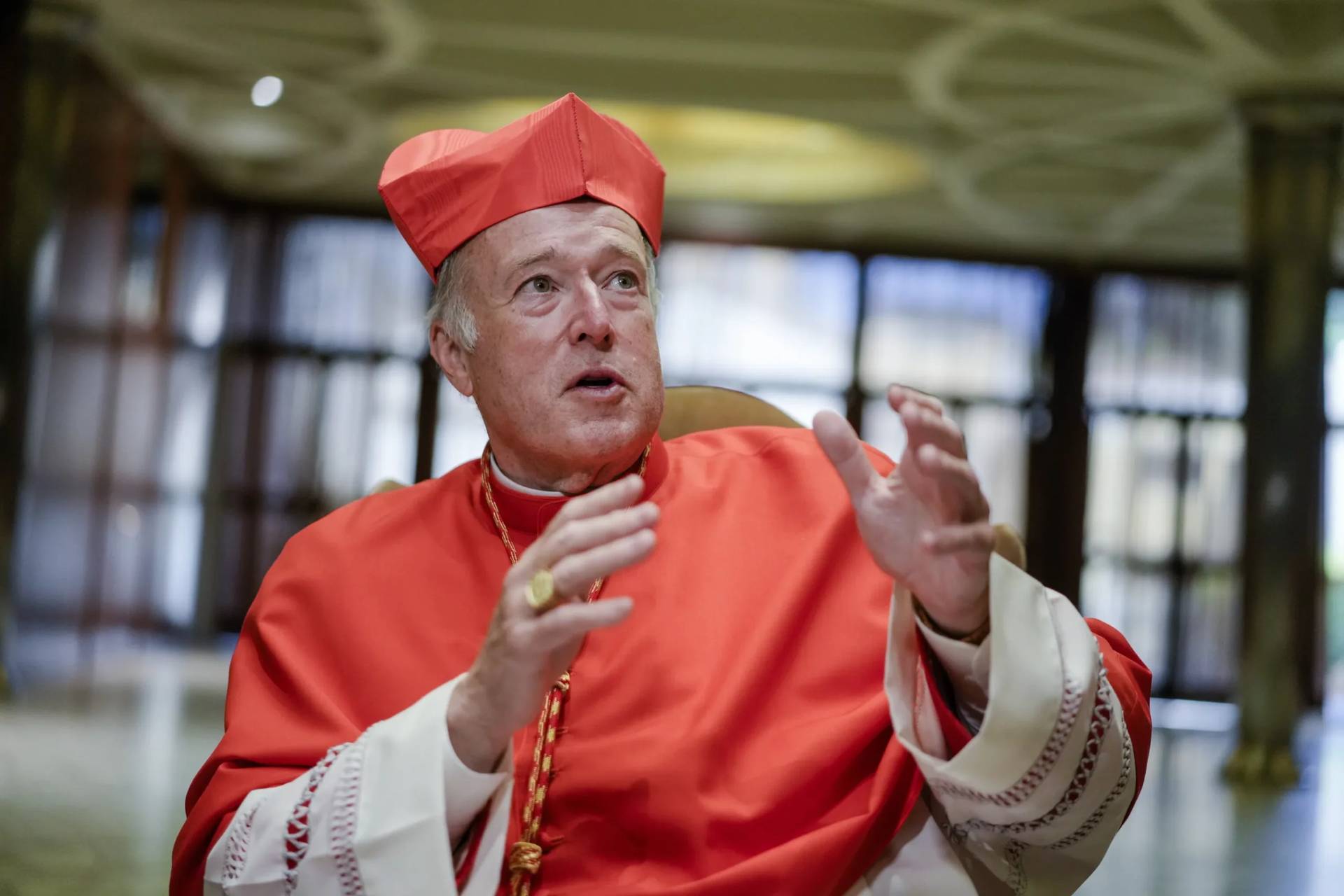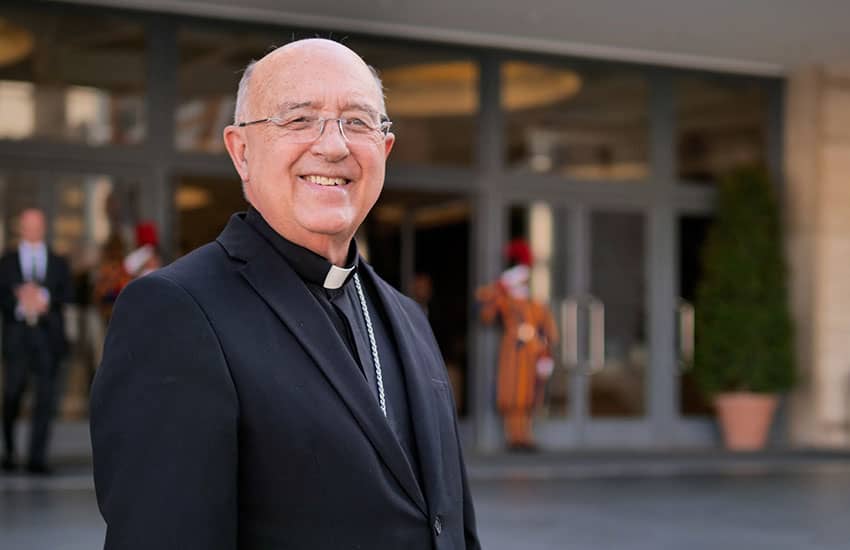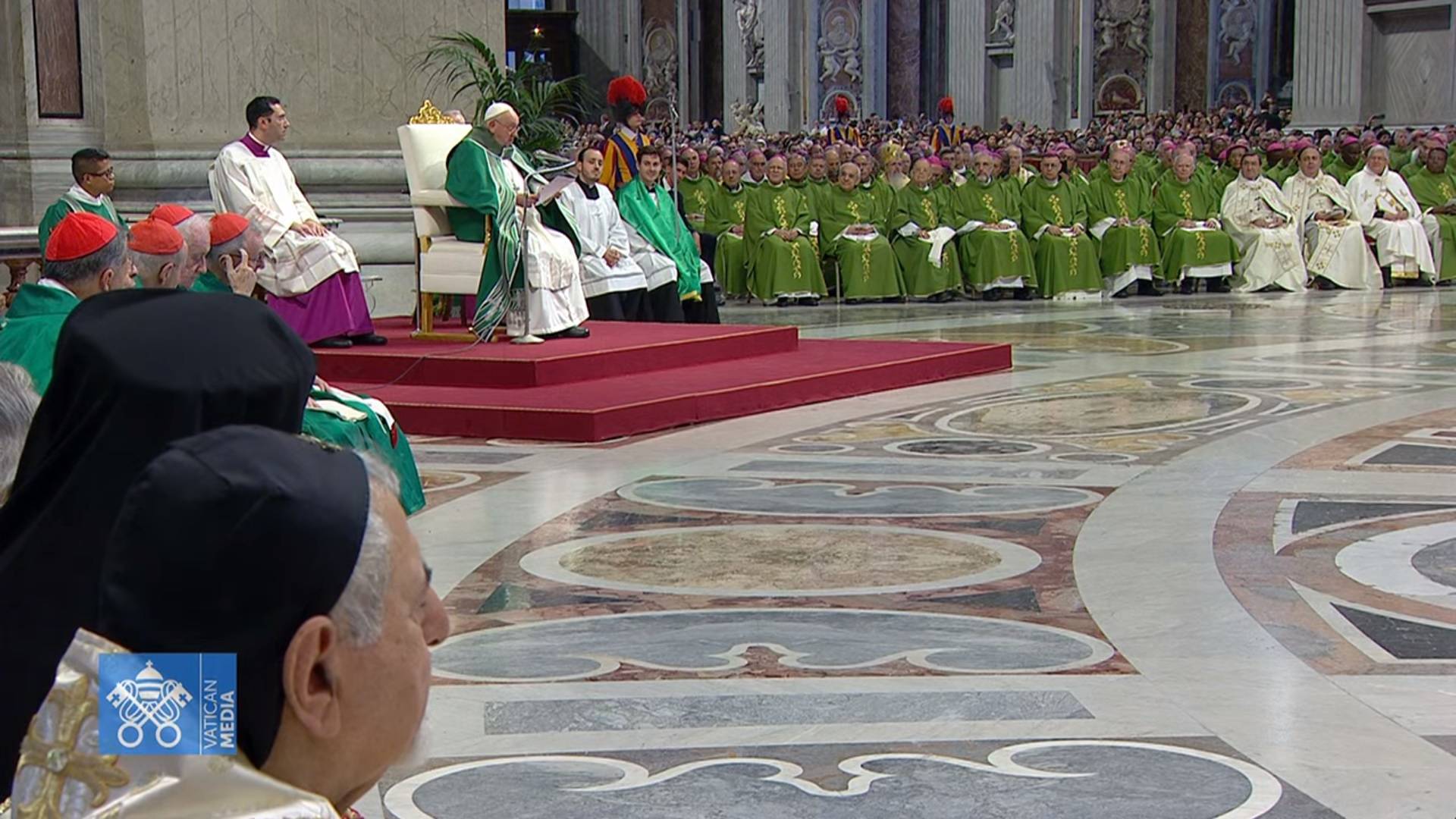ROME – Participants in Pope Francis’s Synod of Bishops on Synodality chosen to speak to the media said Friday that while various topics are being discussed, no decisions will be made on specific issues, and that it is too early in the process to rule on hot-button questions such as women deacons.
Asked during an Oct. 20 press briefing whether it was time to make a decision on women deacons, Archbishop Tarcisio Isao Kikuchi of Tokyo said there are “differences of opinions” within the synod.
There are also differences as far as terminology goes, and one’s understanding of the idea is “highly dependent on the cultural background,” he said, saying, “we are talking about the same thing, but sometimes the understanding is completely different.”
“So, after three weeks, we got to know that there are big differences, and it is too early to make any concrete decisions at this moment,” he said.
Irish Sister Mary Teresa Barron, president of the International Union of Superiors General, said the question of women deacons is “on the table” but also hinted at differences, saying, “The beauty of the Catholic Church is that we have both ends of the spectrum in terms of what we believe.”
She declined to offer her personal opinion, but said the synod is evaluating the issue “within the tension that it does cause within the church” in order to determine “how to journey forward together.”
Archbishop Gintaras Grušas of Vilnius, Lithuania, president of the Council of European Episcopal Conferences (CCEE), told journalists that the synod discussion is much broader than “trying to focus in on one thing, to flip the switch yes or no.”
“Focusing on the various ministries in the church, possibly discovering new ministries in the Church, is part of the discussion,” he said, but indicated that a decision is unlikely.
“We very often try to get things down to black and white, yes or no, go or stop, but I think the discussion that’s happening is one of, how do we live Church in a completely different way, or the same way in a better dialogue,” he said, saying the development of a new internal process of discussion and reflection is the goal, which is “more than trying to say yes or no.”
Sister Houda Fadoul, a Syrian nun representing the Eastern Catholic Churches and the Middle East, pointed to her personal experience leading a women’s congregation in Syria, saying the important thing is that “each one of us, either man or woman, takes up their role and uses their gifts in the Church, no matter what it is.”
“To me it seems that for whatever concept involves the woman, we know well that it involves complementarity, parity. When each one has their place, and uses their gifts, we can speak of any concept,” she said.
Currently finishing its second week, the synod opened Oct. 4 and is set to close Oct. 29, bringing the first of two Rome-based gatherings to a close. The synod will culminate with a second Rome assembly in October 2024.
Participants are currently reflecting on authority in the Church, including the need for greater “co-responsibility” between hierarchs, clergy and laity, as well as the need to avoid clericalism and various forms of authoritarianism in leadership.
Evangelization of the digital world has also been a key point of discussion, with many participants noting that young people are increasingly online, making the internet a new form of “mission territory” for the Church.
Synod organizers have said that not only will participants in the current synod draft and approve of a synthesis document summarizing the monthlong discussion, but they will also publish a letter to the People of God about the experience of the synod process.
Asked Friday about the differences of opinion that have been expressed on various issues and whether there were any topics that held a general consensus in the synod hall, Grušas said the synod is not about specific issues, but rather, “The theme everybody is united on, and that the Holy Father has really moved us on, is synodality itself.”
“When it comes to the specifics of making a decision or conclusion for topics themselves, I don’t think that will happen in this phase or in 2024,” he said, saying the big questions on hot-button topics such as the status of women and the inclusion of LGBTQ+ individuals “won’t go away, they’re part of the Church, but the synod isn’t trying to make decisions on doctrinal or dogmatic issues.”
Grušas said the goal was to let participants in the process have their say and let issues “bubble up” along the way, but he insisted that “there is no preconceived notion of how this is going to end, which really requires a bit of faith in walking out into the unknown.”
“As much as people would like to have some decisions made, I think here it really is the process more important than the conclusions,” he said.
Fadoul echoed the sentiment, saying the synod is “not so much about the topics,” but the methodology of the discussion in bringing people together and listening to what they say, praying on it, and then making a decision “without prejudice.”
Drawing on the Asian cultural tradition of taking off one’s shoes before entering a home, Kikuchi said this reflects a sense of welcome and hospitality, because “have to take off your shoes and be free from daily life, free from the very worries, to enter the house.”
A goal of the synod, he said, is that “we want to be the Church welcoming all the people.”
“First, welcome all the people, then let’s talk about your problem in the Church. Take off your shoes, come in. Don’t stand outside, come into my house and let’s talk about your life. That’s what we want to introduce, to implement, in the Churches in Asia,” he said.
Kikuchi specifically raised concern about the need to reflect on how to better involve the laity, especially in decision-making roles, noting that it was difficult to ask them to leave their jobs and families for a month to take part in the synod.
“We have to really think about how to do it, and I think this is really lacking in clerics because we don’t have a family,” he said.
Participants also said the need for more formation at all levels, for bishops, priests, religious, seminarians and laity, has been a universal concern, and that it will take time to implement changes when they go back to their dioceses and settle into their routines.
Follow Elise Ann Allen on X: @eliseannallen















